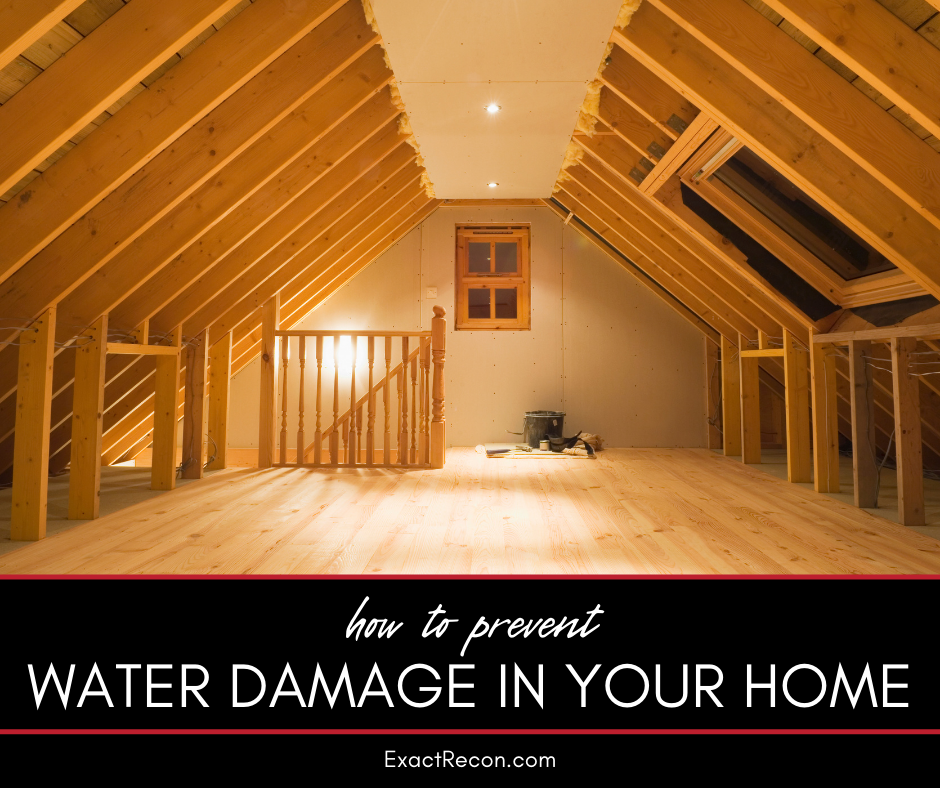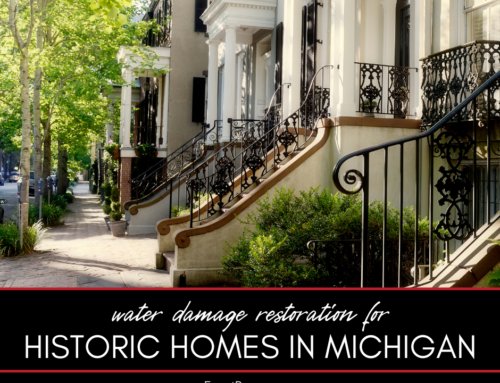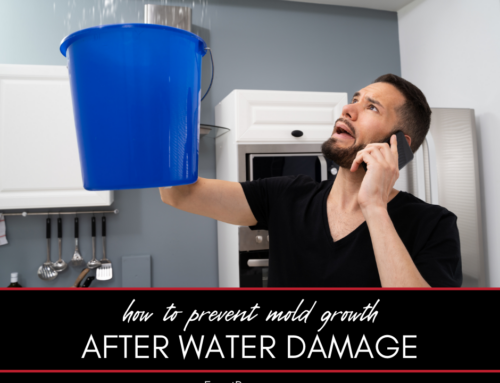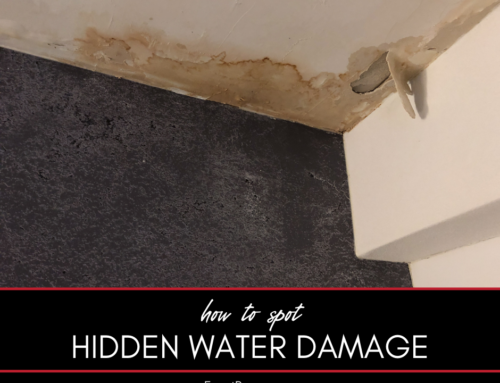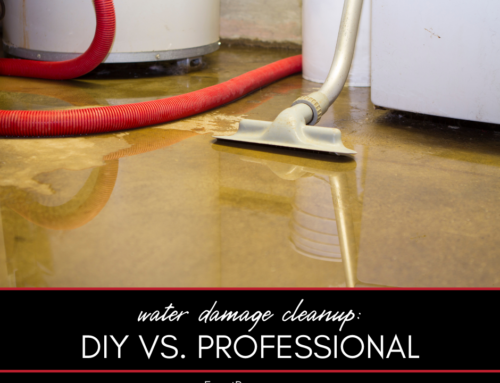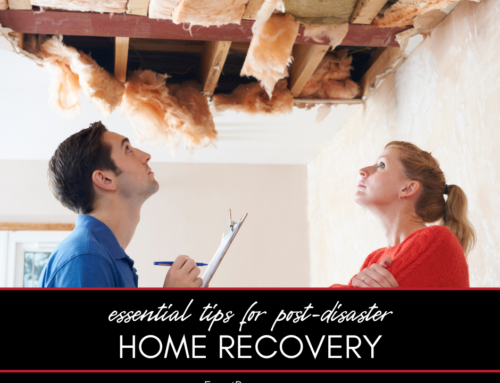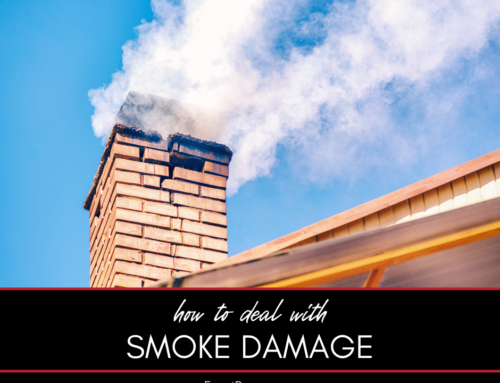Water damage can cause serious problems in your home, from structural issues to mold growth. Preventing water damage is essential for maintaining the safety and value of your property.
How to Prevent Water Damage in Your Home
Water damage can occur for various reasons, including plumbing leaks, heavy rains, and appliance malfunctions. This guide explains the following:
- Identifying common sources of water damage
- Regular home maintenance tips
- Upgrading home systems to prevent water damage
- Emergency preparedness for water damage
- What to do if water damage occurs
Here’s a closer look at each.
Identifying Common Sources of Water Damage
Water damage often starts with small, unnoticed leaks. Common sources include plumbing leaks, roof leaks, appliance malfunctions, basement moisture, and condensation. Pipes can wear out or get damaged, leading to slow leaks or bursts. Damaged or missing shingles can let water seep into your home. Washing machines, dishwashers, and water heaters can develop leaks over time. Poor drainage and high humidity can cause water to collect in basements. Improperly insulated pipes can sweat, leading to water buildup.
Related: Expert tips for dealing with water and fire damage, mold and more
Regular Home Maintenance Tips
Regular maintenance can help prevent many types of water damage. Inspect pipes regularly for leaks, corrosion, and loose fittings. Check your roof for damaged shingles and repair them promptly. Clean gutters and downspouts to ensure they are free of debris and allow proper water drainage. Seal gaps around windows and doors to prevent water intrusion. Inspect hoses and connections on appliances regularly for signs of wear and tear. Check your sump pump to ensure it is working correctly and consider a backup power source.
Upgrading Home Systems to Prevent Water Damage
Consider making upgrades to protect your home from water damage. Install a leak detection system to alert you to leaks before they cause significant damage. Use water-resistant materials like tile or vinyl instead of wood or carpet in areas prone to moisture. Ensure proper grading around your home to direct water away from the foundation. Proper insulation can prevent condensation on pipes and in attics.
Related: Creating a disaster preparedness kit for your home
Emergency Preparedness for Water Damage
Being prepared for emergencies can minimize the impact of water damage. Ensure all household members know how to turn off the main water supply. Create an emergency kit that includes items like a wet/dry vacuum, fans, and dehumidifiers to deal with water quickly. Know the risks in your area and have a plan for heavy rains, hurricanes, or floods.
What to Do If Water Damage Occurs
If water damage happens, take immediate action to minimize the impact. Turn off the water supply or address the leak if possible. Document the damage by taking photos and making notes for insurance claims. Use a wet/dry vacuum and fans to start drying out the area. For severe damage, contact professionals for help.
FAQ About Water Damage Prevention
Check out these commonly asked questions about water damage prevention. If you don’t see your question here, please call our office and we’ll find you the answers you need.
How Often Should I Inspect My Home for Water Leaks?
You should inspect your home for water leaks at least twice a year. Regular inspections can help you catch small leaks before they become major problems.
Related: How to salvage your belongings after major home damage
What Are the Signs of Water Damage?
Signs of water damage include discoloration on walls or ceilings, a musty odor, peeling paint, and warped floors. If you notice any of these signs, it’s essential to investigate further.
Can Water Damage Lead to Mold Growth?
Yes, water damage can lead to mold growth if not addressed promptly. Mold thrives in damp environments, and even small amounts of moisture can encourage its growth.
How Can I Improve Drainage Around My Home?
To improve drainage, ensure that your yard slopes away from your home’s foundation. You can also install downspout extensions and French drains to direct water away from the house.
What Should I Do If My Basement Floods?
If your basement floods, remove the water as quickly as possible using a wet/dry vacuum or a pump. Dry out the area using fans and dehumidifiers. Contact professionals if the flooding is severe or if you suspect structural damage.
Do You Need a Disaster Remediation Expert in Washtenaw County or Jackson County?
If your home has already been damaged, we can help. Check out our services and call Exact Recon for your free disaster remediation quote today. We offer:
- Water damage restoration
- Fire damage restoration
- Mold removal and remediation
- Fire and smoke restoration
- Sewer cleanup and disinfecting
- Reconstruction
- Wind and storm damage repair

